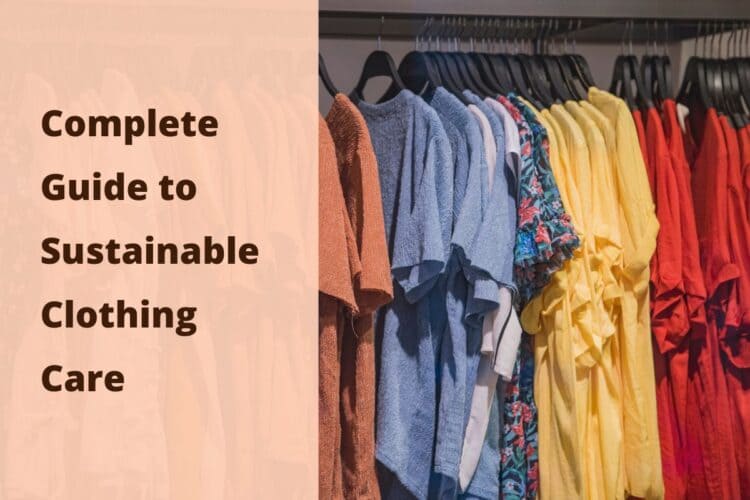In a world grappling with the impact of fast fashion on the environment, it\’s imperative we turn our attention to sustainable clothing care and lifestyle. From choosing the right manufacturers to understanding the actual care process, it\’s a wholesome approach to fashion and its environmental impact. Let\’s dive right into it.
What is Sustainable Clothing Care?
Before we delve deep, let\’s define sustainable clothing care. In essence, it\’s about taking measures to increase the lifespan of garments, thereby reducing the need to constantly buy and discard clothing. This, in turn, helps in reducing the environmental footprint left by the fast fashion industry. A large part of sustainable clothing care starts at the point of purchase. It’s essential to buy from sustainable clothing manufacturers, including regional ones like sustainable clothing manufacturers in Germany and sustainable clothing manufacturers in Dubai.
Moreover, it\’s beneficial to work with suppliers who are vested in sustainable apparel manufacturing. For those in Germany, aligning with a sustainable clothing supplier in Germany is a smart move. Similarly, for businesses or consumers in the Middle East, considering the sustainable clothing supplier in Kuwait or the sustainable clothing supplier in Riyadh can help in procuring products that are designed for longevity and minimal environmental impact.
How do you take care of sustainable clothes?
- Gentle Washing: Sustainable clothes, especially those from specialized manufacturers The Odd Factory, often require gentler care. Opt for cold water washes and use eco-friendly detergents.
- Air Dry: Whenever possible, air dry your clothes instead of using a dryer. This not only saves energy but also ensures that your garments last longer.
- Regular Maintenance: Fix minor tears and replace lost buttons promptly. This increases the lifespan of your clothes, meaning you don’t need to discard them prematurely.
- Storage: Store clothes in a cool, dry place. For garments made from delicate fabrics, consider using garment bags.
- Mindful Purchases: Buying from sustainable apparel manufacturing units means the clothes are designed to be long-lasting. However, always check care labels and ask the supplier, whether it\’s from Kuwait, Riyadh, or any other place, about the best ways to maintain the clothing.
What is the environmental impact of fast fashion?
Fast fashion has undoubtedly made clothing more accessible and trendy but at a substantial environmental cost:
- Waste Production: Fast fashion has led to an increase in textile waste. Most discarded clothes end up in landfills, taking years to decompose.
- Water Consumption: The fashion industry is one of the largest consumers of freshwater. A single pair of jeans can consume up to 7,500 liters of water during its production.
- Chemical Pollution: Dyeing and treating fast fashion garments often release toxic chemicals into waterways, harming aquatic life and the people living downstream.
- Carbon Footprint: Fast fashion\’s rapid production cycles and global transportation lead to an increased carbon footprint.
By opting for garments from sustainable sources like sustainable clothes manufacturers, you can significantly reduce these detrimental impacts.
Benefits of Sustainable Clothing
- Environmental Conservation: Sustainable clothing, especially when procured from regions renowned for eco-friendly practices like Germany and Dubai, tends to consume less water and produce fewer carbon emissions.
- Economic Savings: While sustainable clothes might have a slightly higher upfront cost, their longevity ensures you save money in the long run.
- Toxin-free: Sustainable apparel manufacturing often avoids harmful dyes and chemicals, ensuring what you wear is safe for your skin.
- Ethical Practices: Many sustainable clothing manufacturers prioritize ethical labor practices, ensuring that the workers who make your clothes are treated fairly and paid a living wage.
- Support for Local Industries: When you buy from a local sustainable clothing supplier, whether in Germany, Kuwait, or Riyadh, you’re supporting local economies and reducing the carbon footprint associated with transporting goods.
In conclusion, sustainable clothing care isn\’t just about how you wash or store your clothes. It\’s an all-encompassing approach that starts from where you buy your garments to how you maintain them. As consumers become increasingly conscious of their environmental impact, aligning with sustainable clothing manufacturers and adopting a green approach to garment care is the way forward. The future is sustainable, and it begins with the choices we make today.



